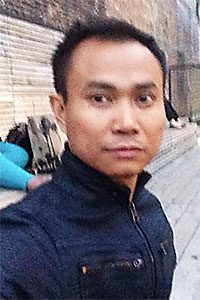
Reform has become the buzz-word in the context of pre- and post-2014 coup Thailand. First, the defunct People's Democratic Reform Committee made a demand for national reform before elections. Since the military staged the coup, national reform has also been part of the key agenda of the National Council for Peace and Order (NCPO). Now, the draft constitution that will be decided at the referendum tomorrow promises national reform as part of its key elements.
Up until now, it has been difficult for Thais to spell out what kind of systematic reform that the country has achieved exactly after the coup under the current regime (taking into account that we don't count the NCPO's heavy-handed measures and the use of sweeping powers to quickly change things as part of the reform -- otherwise it is a worrying path for us all).
A section on national reform in the draft constitution features broad and vague statements that cannot help us picture what the country will look like after reform takes place. It requires national reform to begin within one year after the promulgation of the constitution.
On the contrary, a definite and clear change that Thais can expect if the draft constitution is endorsed is the transformation of Thailand into a democracy predominantly influenced by the privileged few -- the sort of democratic reform we have to live with.
The draft constitution that the referendum electorate will decide tomorrow, whether to bury or live with, will enhance and entrench the political power of the military, the judiciary and independent public organisations -- the circle of the country's elites.
It is the sort of change that opponents of the draft charter find hard to accept.
It is not just the political parties, from both opposing camps who stood in the middle of the then so-called political divide, who find the draft charter hard to swallow.
Political scientists, activists and civil society groups have also raised their concerns over its undemocratic principles and a tendency that it will limit the power and freedom of ordinary citizens.
Vowing to reform and reconcile the divided nation as well as tackling the roots of corruption by public office holders, the NCPO has offered a draft charter that will allow the military to select 250 members of the upper house including six seats reserved for the army and the police during the first five years. It simply bestows political power on the military.
The worst-case scenario is the appointment of an unelected prime minister. If the lower house cannot pick a person from their list, half of them can then nominate a non-elected person and the NCPO-appointed Senate can join the vote.
The current draft charter goes further as it implies the need for "good people" to keep an administration in check.
The judiciary and independent agencies will also have significant power to hold the administration and the legislative bodies accountable.
They will be empowered to set their own ethical standards that will have to be applicable to members of the lower house and can impeach any MPs who are considered to have failed to meet such standards.
Other less democratic and questionable principles in the proposed charter, such as a lack of decentralisation, also make it a less promising option for its opponents. A provision to prolong the power and tenure of the Constitution Drafting Committee to draft a number of laws under the charter is also a mounting concern.
Opponents have made their point that an elected government under this draft charter will be a weakened one.
After a dozen coups and almost two dozen constitutions, Thailand has both gained and lost during the past 84 years. We have attempted to initiate countless reforms under different constitutions, aiming to establish better models, better principles and better values to replace or fix what we believed to be the root causes of the problems.
For many, the current draft charter does not seem to offer the type of reform that Thailand, in a modern era, is in need of. On the contrary, if it fails in the referendum it is crystal clear that we need a meaningful change in the process of drafting a new constitution.
The future of the country is at a critical stage. Voters will decide how they want to see the future pan out.
Surasak Glahan is deputy Op-Ed pages editor, the Bangkok Post.
